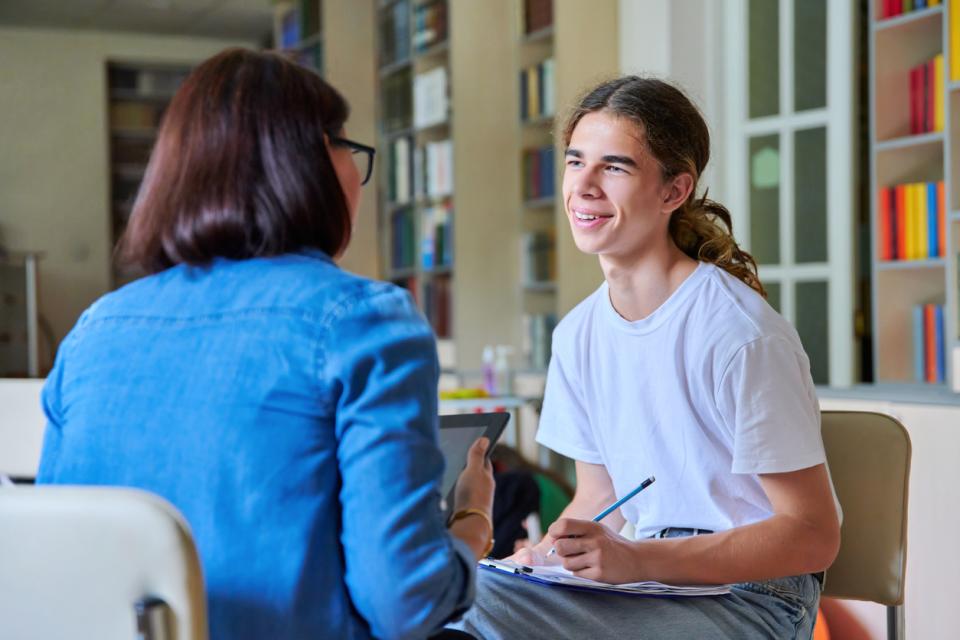We are continuously looking for ways to improve our student support in order to boost academic outcomes and well-being across the university.
As part of this, we are trialling several pilot schemes within the University of Bristol’s School of Economics. Here are our insights on the progress of each scheme so far, with suggestions for how universities can innovate to improve student support.
Hire dedicated student success advisers
Student advisers should provide proactive, student-led support rather than waiting for students to fall into difficulties before offering help.
We have hired three new full-time Student Success Advisers, dedicated to creating resources to help in areas where we often see students struggling, such as the transition from school to university.
The advisers will look at past data and trends to actively identify students who might need more support and make contact early to ensure they can access the help they need to achieve their potential.
Advisers can refer students to more specialised help from well-being, academic and professional services teams. We hope this will reduce the anxiety that some students feel about whether a specific service is appropriate for them.
- Resource collection: The key tenets of student support
- How immediate feedback motivates both students and educators
- Resource collection: Using data to support student success
Restructure careers advice
With most of our students coming from overseas and growing pressure to choose courses with a solid career path in mind due to rising living costs, careers support should be interwoven with the academic programme as early as possible.
In practical terms, this means introducing regular talks from employers throughout the academic year, providing CV and cover letter writing assistance through personal tutors and working with our Professional Liaison Network (PLN) – which runs activities designed to connect businesses with students and academics – to increase the number of students joining our mentorship scheme.
The mentorship scheme pairs students with alumni who studied the same degrees and are using them in their jobs. We take the students’ career aspirations and interests into consideration. This means mentors have real insight into the challenges students might be facing and can answer their questions, provide tailored support and offer new perspectives on possible careers. Mentors also provide students with mentoring challenges – small pieces of work or research designed to focus the content of meetings, further develop students’ skills and produce evidence of those skills for job applications.
The PLN engages students with companies and organisations that are relevant to their academic subjects and organises talks and paid internships. This year, we are introducing pop-up careers and employability drop-ins, as well as expanding career-focused live events, so that students who are hesitant to attend one-to-one careers appointments, or want general advice, can engage more casually.
Embed workplace skills in each programme
We ensure important skills such as problem-solving and data analysis are worked into our programmes to prepare students for the future workplace. Optional modules on communicating economics and data science have been introduced to most undergraduate courses. These have direct, real-world application and get our students thinking about some of the challenges they might face in the future.
We are well placed to do this because our school hosts the Economics Network, a renowned centre for economics education and pedagogy, and the Economics Observatory, which bridges the gap between academic research, government policy and the public. Our connections with industry keep us up to date on necessary workspace skills that should be included in the curriculum.
Our new interdisciplinary master’s in economics with data science takes these principles a step further, as the students complete real industry projects in place of traditional dissertations. Students work in groups and solve real-life problems jointly designed by academics and industry partners, while receiving support from the PLN and personal tutors.
The aim is to help students demonstrate the tangible benefits of their studies to future employers, build their resilience and confidence as communicators and ease their transition from education to employment.
Research barriers to postgraduate students taking up support
A one-size-fits-all approach does not reflect the needs of all students at different stages of study. At postgraduate taught (PGT) level, our diverse, predominantly international students need academic advice tailored to their subjects, on top of pastoral and well-being support to help them manage the challenge of living abroad and adapting to changes in culture, language and learning style.
Our academics recently undertook Royal Economic Society-funded research to identify specific barriers to PGT students seeking support and develop ways to overcome these. Analysis of 105 student interviews and more than 500 student surveys revealed that PGT students value approachable, proactive academic personal tutors, but are often hesitant to reach out due to language concerns, cultural barriers and adverse prior experiences in higher education. Students who perceive their spoken English as “not good enough” or those who have concerns over their tutor’s gender have higher barrier indexes.
From workshops with higher education colleagues at UK Advising and Tutoring Association and Advance HE conferences, our academics collated challenges faced by academic advisers. The top concern was academic workload, along with engagement and monitoring issues from both the tutors’ and students’ sides.
To overcome these challenges, we introduced a team of advisers made up of academic and professional services staff representing a mix of genders, ethnicities and spoken languages. We evaluate initiatives on an annual basis with a survey linked to PGT dissertation submission to maximise participation.
Build peer support networks
A powerful way to support students’ learning is to help them develop alongside their peers as part of a community of learners. Collectively working on problems builds students’ teamwork skills and helps them develop a deeper understanding of academic materials.
Starting this academic year, we are introducing a new peer-assisted learning and support scheme for our first-year students, called Sage (Student Assisted Guidance in Economics). The Sage leaders are second-year students, with selection based on their first-year academic performance.
They will run weekly one-hour drop-in study support sessions for each core unit across our programmes, helping new students transition to university life and develop good academic practices. The scheme offers peer support alongside formative tasks, including working through problem sets and tutorial questions covered during term via discussion rather than teaching.
Sage sessions will give first-year students a friendly and safe space to review and enhance their learning through conversation with peers on the same or similar courses to themselves. However, these sessions do not replace tutorials or office hours offered by academics.
We also facilitate the formation of study groups among students across all years of study. While some students organically form study groups, others need support to build their networks. Part of our new student success advisers’ role will be to help students find others to form networks, as well as identifying spaces on campus where the groups can meet.
We will be carefully monitoring the success of these projects over the coming year in the hope of seeing tangible improvements to student well-being.
Andy Wistow is school manager in the School of Economics at the University of Bristol.
If you found this interesting and want advice and insight from academics and university staff delivered direct to your inbox each week, sign up for the Campus newsletter.




comment1
(No subject)